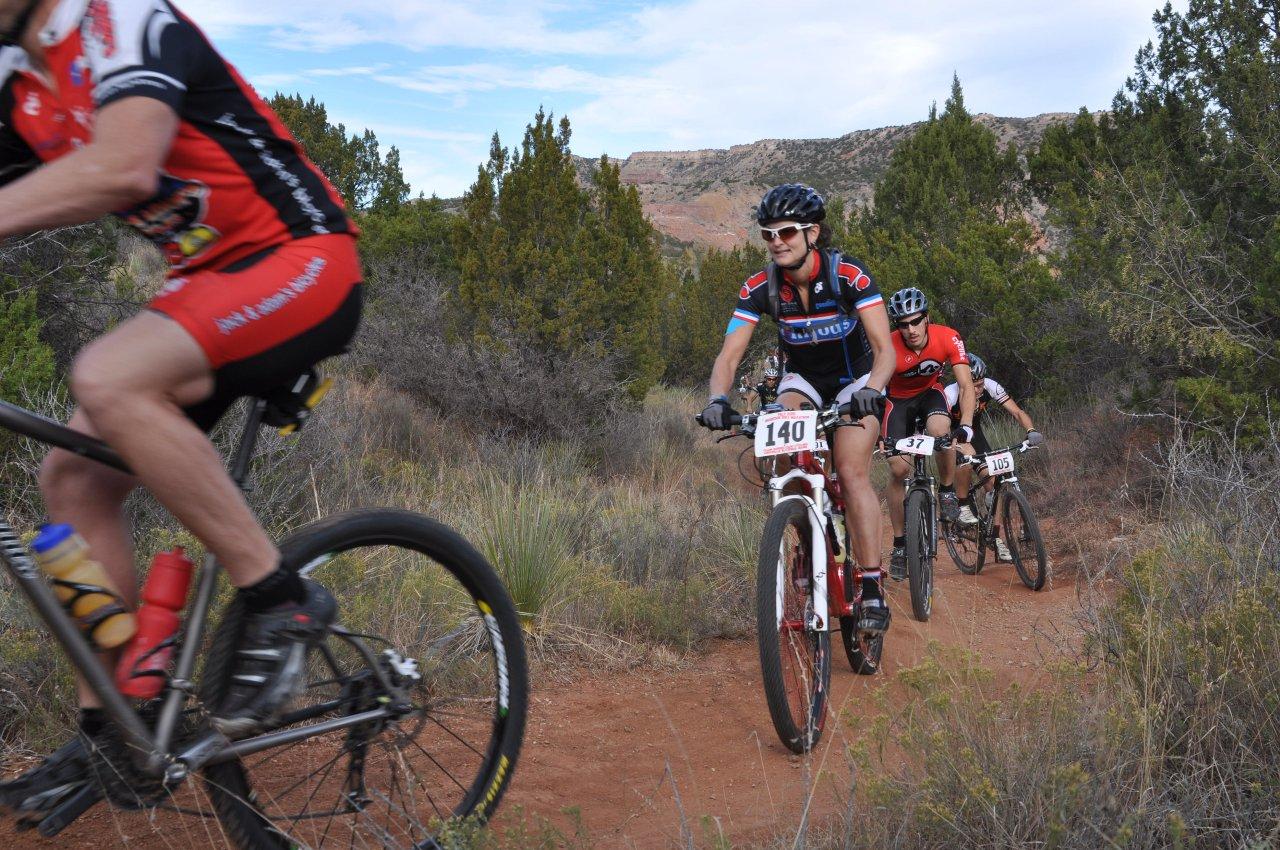When the New You is not as Fast as the Old You

PART 1
Comparison–the inevitable pitfall of injury recovery. Comparison–not to someone else, but to your old, “perfect,” pre-injury self.
The comparison to your old self is highly quantifiable. Indeed, the exact percentage by which you currently suck is easy to measure. It’s probably on a graph your workout software automatically generates. Everywhere you go, alarms and screens tell you exactly what you’ve lost. It takes iron fortitude to not feel totally discouraged by this constant drip of negative feedback.
I’ve been on a three (plus) year injury recovery journey, including two years on crutches, one year spending far too much time flat on my back in a constant passive motion machine, and one year learning to walk again. I should be grateful that I can walk, let alone ride a mountain bike. Alas, on a perfectly gorgeous day for a ride, I walked–or rather rode–headlong into the comparison hole. The day started fine as I began pedaling toward a trailhead truly joyous that I’m well enough to mountain bike again. Then things went downhill.
The comparison hole was disguised as miles of beautiful, sinuous trail, all of which I know well. I had raced there many times, flowing effortlessly around tight corners for hours. After ten minutes I began to hear the insidious voice of comparison. “You used to fly through this section!” it whispered. “You don’t need to grab your brakes here. Stop slowing down, ya big sissy,” it spoke a little louder. “You used to be fast. What’s wrong with you? You’ve got a lot of work to do,” it deafeningly shouted. Simultaneously, I hear Dan encouraging me up every punchy climb and loose descent. “Strong! Fast! NICELY DONE!” The disparate messages became unbearable; I needed to pause. I grabbed two fistfuls of brake and stopped so fast I practically scraped the knobs off my tires.
The siren song of comparison drowned out Dan’s loving, encouraging audible voice. How could the voice in my head–my own self-judgment–have more influence than Dan’s exclamations of reassurance shouted loud enough to be heard throughout the forest?
If I’m honest, this wasn’t the first time I compared post-injury me to the original strong, nimble me. The first incident came quite out of the blue following a mountain bike clinic on trails more technical than I’d ridden since before my injury. I physically and mentally hacked my way through almost three hours of riding and drills, only to arrive back in the parking lot a defeated shell of myself. My brain played over and over, “I had fun, but I used to be able to…” I beat myself up over waning technical skills when I should have been grateful to ride. I’ve long since released my identity as an endurance mountain bike racer, yet I was still confused. Should I be happy that I can ride at all, sad that I can’t do what I used to, or both at the same time and frustrated that I don’t know how to feel? What’s going on? Then I did what any self-respecting person would do. I had a breakdown.
In due time, I pulled it together and called my friend Sean, who I’ve known since college. He’s a gifted listener, coach, teacher, and detective. “Sean, I’m worried I’ll never get my technical skills back.” I said. “Heidi, I know it’s hard right now. I want you to think of it this way: You used to be fast, but like everyone else, you probably had flaws in your technique. When we rebuild your skills, you’ll lose the bad habits that slowed you down and you’ll be faster. We’ll start from the beginning on easy trails with four skills you need to master. Once you’re proficient we’ll move to a more difficult trail, building a foundation of positive experience and confidence until you can master the four skills on any trail.” My clients have heard eerily similar words from me, but I couldn’t help myself out of the comparison hole. It took connecting with a trusted friend to realize what I couldn’t grasp myself.
In my research, in my experience with clients, and through friendships, I hear how pervasively and deceitfully comparison knits itself into the recovery tapestry, only to activate a rapid unraveling when we least expect it. Comparison dishonors progress and so much more; it dishonors you.
After two confrontations with comparison, the clue phone was ringing and I couldn’t hit ignore. Answering meant looking deeper and asking questions. I know I’m not the only one. I’m writing this blog and sharing my story so you know you’re not the only one. Comparison happens to everyone, and it certainly happens to the community of injured athletes with whom I work. This blog is for the community because comparison is a shared experience. Every athlete has a peak. Sometimes the peak ends sooner than we’d like because of injury, and sometimes aging causes a decline. Either scenario causes angst. Just look at 2010 Olympic gold medal moguls skier Hannah Kearney’s heartache at 35 seconds.
In the second half of this blog you’ll learn more about the comparison hole–how to gracefully step around it, warning signs you’re getting close to falling in, what to do if you fall in, and approaching injury as a rare opportunity to rebuild.
Until part two, keep moving forward…






